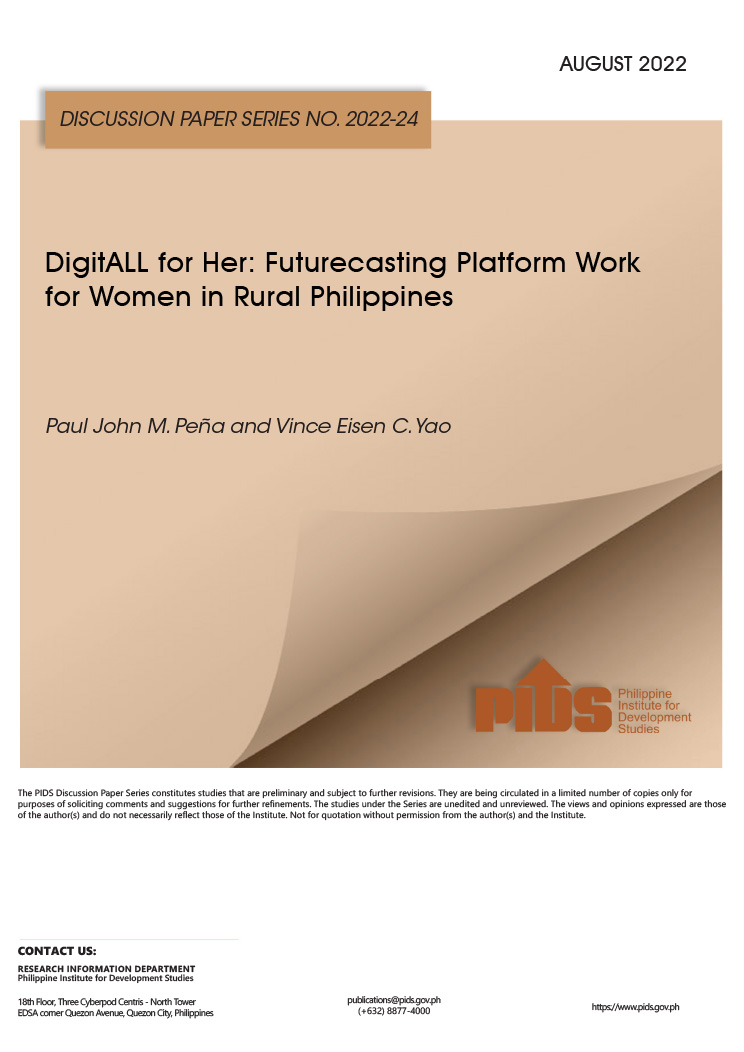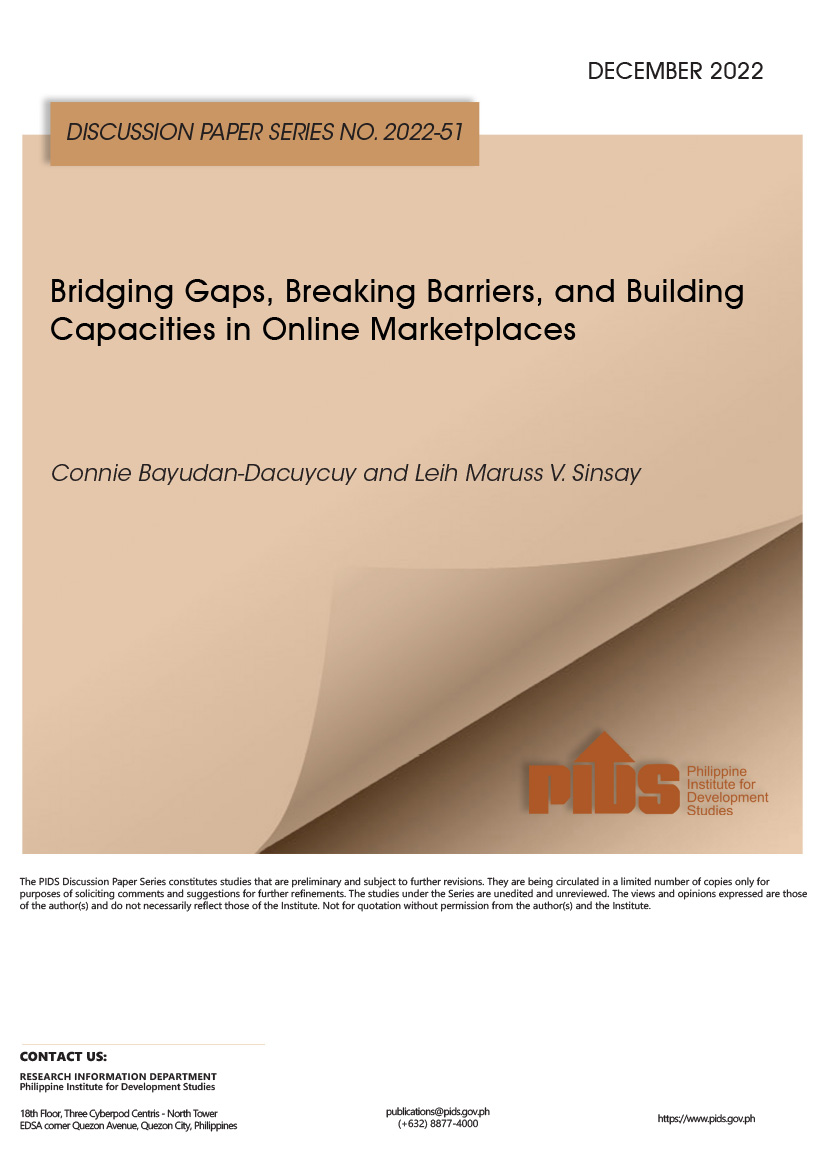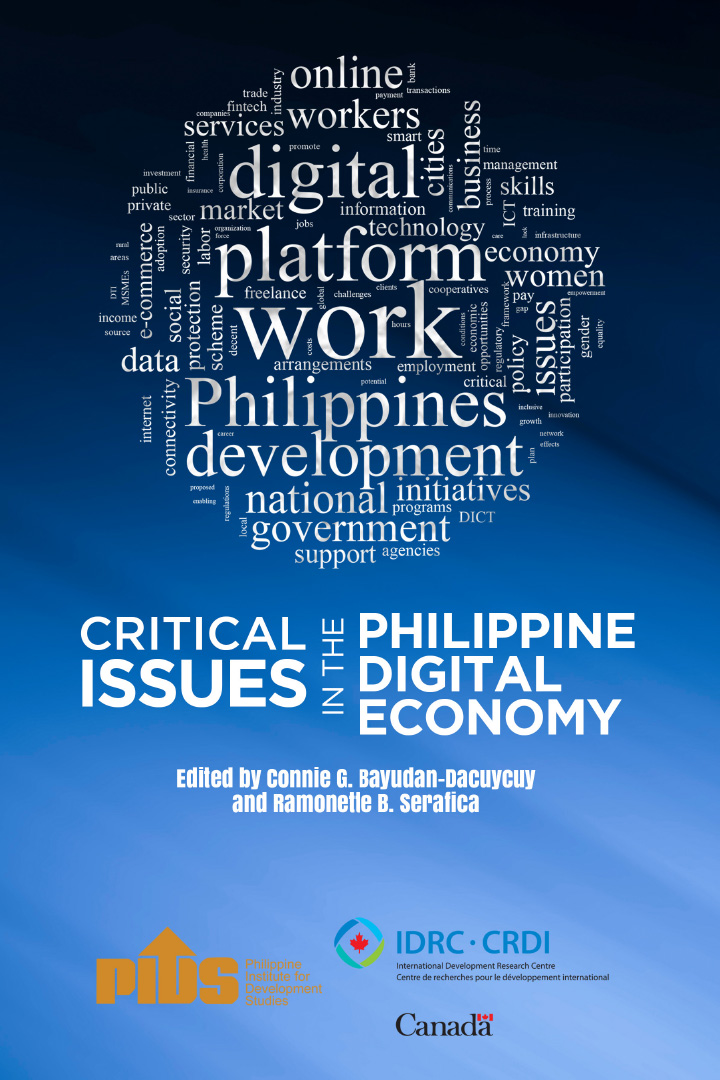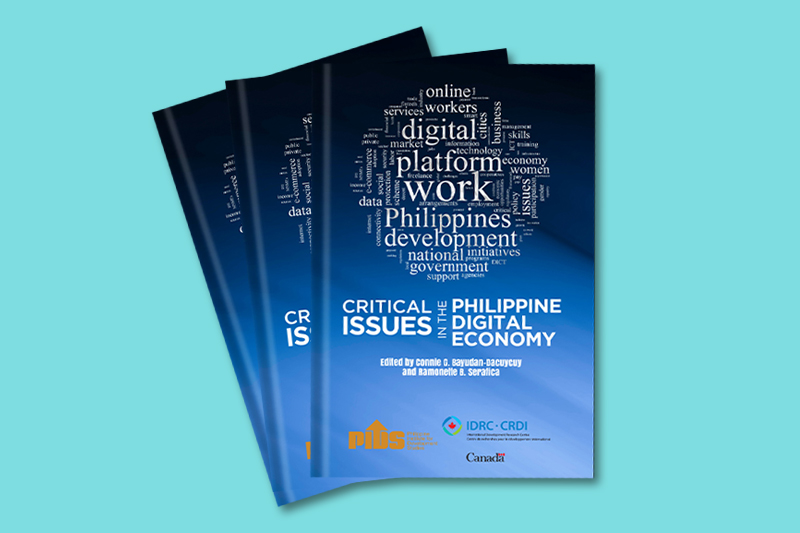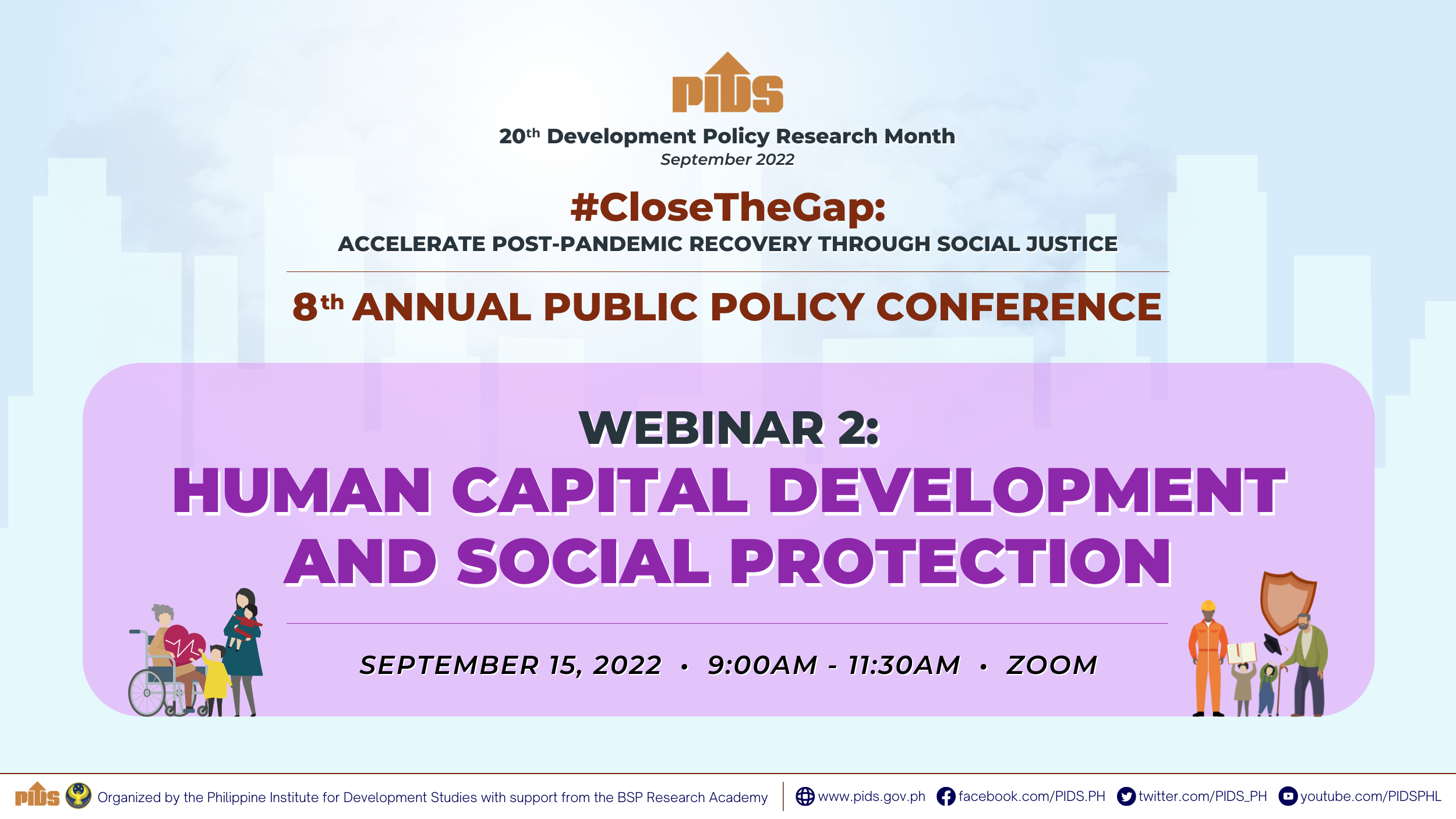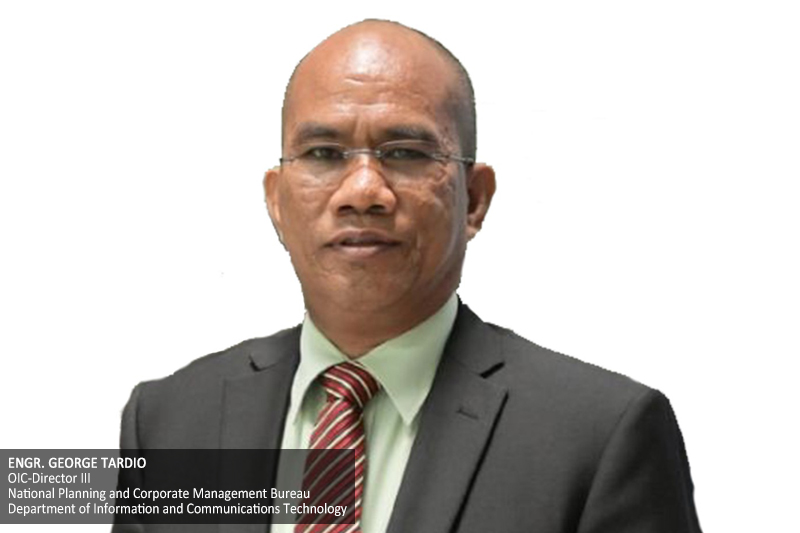
The COVID-19 pandemic has accelerated the use of digital technologies that enable telecommuting and virtual collaboration schemes. However, it has also magnified social protection issues faced by online or platform workers, including the lack of security benefits and protection entitlements.
This was according to Department of Information and Communications Technology (DICT) National Planning and Corporate Management Bureau OIC-Director George Tardio, who served as a discussant during a webinar on online and platform work recently organized by the Philippine Institute for Development Studies (PIDS).
According to Tardio, the public health crisis also showed the need to upskill and reskill online and platform workers, especially those in “the lower end of the value chain”, such as the creative, multimedia, and sales marketing support, “who have been greatly affected by the pandemic”.
Tardio said the government should implement mechanisms to support the upskilling of online and platform workers and institutionalize social protection mechanisms for them. He noted that this can be “kick-started by mapping online work providers and workers”.
The DICT official also recognized the existence of digital divide in the country and noted that the government can “maximize the ‘digital dividends’ from digital platforms” if it can bridge the said gap.
Currently, the department implements the National Broadband Program, which aims to provide faster, efficient, and equitable broadband connectivity, especially in far-flung areas, and the Free WiFi for All Program, which aims to provide WiFi in all public places and state universities and colleges. Tardio said 7,556 live sites had been established in 17 regions, 79 provinces, 933 municipalities, and 120 cities as of December 2020.
It also has programs that support the reskilling and upskilling of workers and promote meaningful use of online platforms, such as the Digital Workforce through ICT Academy, Scaled Upskilling for IT-BPM Workers, and digitaljobsPH.
Tardio added that the government should leverage on existing data collection and generation mechanisms, such as the National ICT Household Survey, Women and ICT Development Index Survey, and the IT-BPM Baseline Survey, to improve measurement of the size, scope, and participants of the platform economy.
Finally, he stressed the importance of “strong local, national, and international cooperation and collaboration” so that the ‘digital dividends’ will be equally felt and enjoyed by all.
You may watch the webinar at https://www.facebook.com/PIDS.PH/videos/787739805454324. For more videos of PIDS events, go to https://www.pids.gov.ph/videos.
This was according to Department of Information and Communications Technology (DICT) National Planning and Corporate Management Bureau OIC-Director George Tardio, who served as a discussant during a webinar on online and platform work recently organized by the Philippine Institute for Development Studies (PIDS).
According to Tardio, the public health crisis also showed the need to upskill and reskill online and platform workers, especially those in “the lower end of the value chain”, such as the creative, multimedia, and sales marketing support, “who have been greatly affected by the pandemic”.
Tardio said the government should implement mechanisms to support the upskilling of online and platform workers and institutionalize social protection mechanisms for them. He noted that this can be “kick-started by mapping online work providers and workers”.
The DICT official also recognized the existence of digital divide in the country and noted that the government can “maximize the ‘digital dividends’ from digital platforms” if it can bridge the said gap.
Currently, the department implements the National Broadband Program, which aims to provide faster, efficient, and equitable broadband connectivity, especially in far-flung areas, and the Free WiFi for All Program, which aims to provide WiFi in all public places and state universities and colleges. Tardio said 7,556 live sites had been established in 17 regions, 79 provinces, 933 municipalities, and 120 cities as of December 2020.
It also has programs that support the reskilling and upskilling of workers and promote meaningful use of online platforms, such as the Digital Workforce through ICT Academy, Scaled Upskilling for IT-BPM Workers, and digitaljobsPH.
Tardio added that the government should leverage on existing data collection and generation mechanisms, such as the National ICT Household Survey, Women and ICT Development Index Survey, and the IT-BPM Baseline Survey, to improve measurement of the size, scope, and participants of the platform economy.
Finally, he stressed the importance of “strong local, national, and international cooperation and collaboration” so that the ‘digital dividends’ will be equally felt and enjoyed by all.
You may watch the webinar at https://www.facebook.com/PIDS.PH/videos/787739805454324. For more videos of PIDS events, go to https://www.pids.gov.ph/videos.

